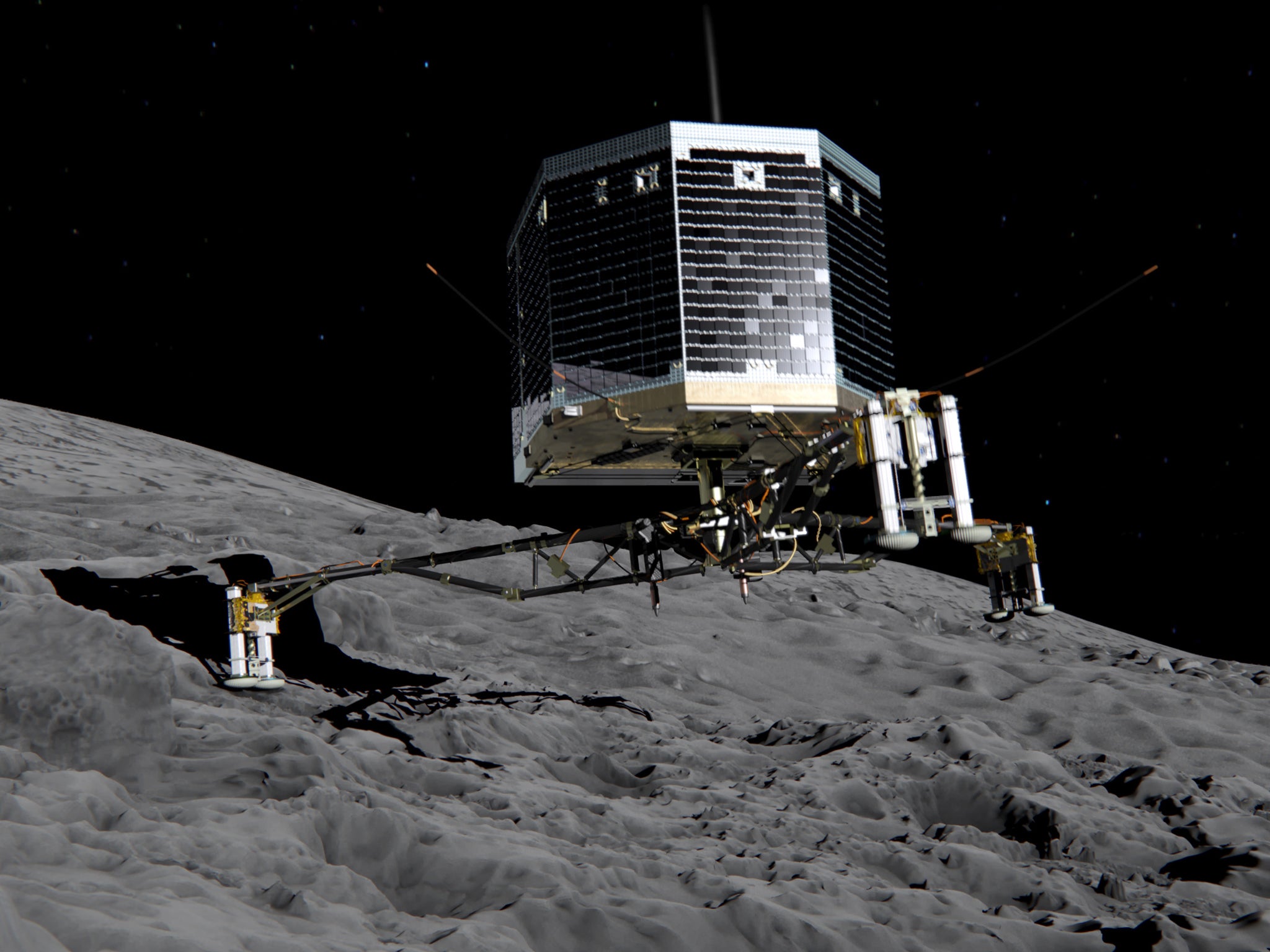Philae lander: Rosetta mission scientists give up hope of ever hearing from comet 67p's robot
Last attempts to wake up the little robot have failed, scientists on the pioneering mission have said

We should abandon all hope of hearing from the Philae space probe, scientists have said.
The mission was hailed as a huge success wehn it successfully landed on a comet almost a year ago. But after initial success, the probe has stopped communicating and is unlikely to turn back on, scientists have said.
The German Aerospace Centre said the chances of re-establishing contact with Philae are "almost zero" and any response from the lander would be "very surprising".
The mission was hit by problems from the off. The harpoons that were meant to help it stick down on the surface of comet 67P never fired. It then appeared to get stuck in the dark, meaning that it couldn't charge through the solar panels that were intended to keep it going.
The team had hoped that the spacecraft might shake off the dust covering it and find its way back into the sun's light. But Philae hasn't responded, and is thought to be stuck in a risky part of the surface.
Scientists last made contact with the lander on July 9, but efforts since then have failed. Scientists sent a last ditch message to the lander last month, in the hope of waking it up — but that was unsuccessful, and scientists said they would be unable to try again becuase the comet has travelled too far from the sun and become too cold for Philae to wake up.
Before it stopped communicating, Philae sent back reams of data about 67P/Churyumov-Gerasimenko that scientists will spend years analysing.
The mother craft, Rosetta, will continue to carry out scientific measurements in orbit around comet 67P until September, when it will be steered to land on the surface as well.
Additional reporting by Press Association
Join our commenting forum
Join thought-provoking conversations, follow other Independent readers and see their replies
0Comments